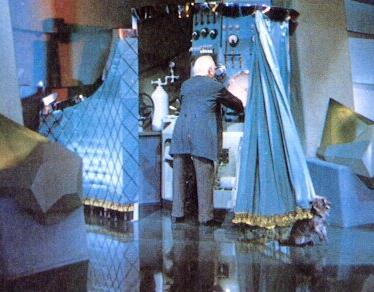You really want to know what it feels like to be rewarded for work that makes the world a better place.
Where’s the job that will pay me “a living wage” for producing social benefits?
Where’s the job that will leave me feeling proud of what I’ve accomplished—both for myself and for others—when my workday is over?
There’s nowhere you can think of where you can bring your energy and talent to a job and get these kinds of returns.
Sure, there are plenty of opportunities “to give your time away.” Places to volunteer. Worthy causes. You can knock on doors. Call strangers up at dinnertime for donations. Play your guitar in a hospital room. There are many things good people do “after work” in your community.
That is, after they do what they have to do.
Because they’ve got to put food on the table, pay the bills, keep the wolf at the door. They want, and you want your work to have an impact, but how do you “make a living” and also accomplish something worthwhile?
Can you really afford to do work that makes a difference?
You never thought it was possible that your work in the store or office, in your car, on the phone or behind a counter could be about healing the world and, just like any other job, that you’d be paid well for your time, your effort and your talent.
You always thought it was “either/or.”
There was charity and there was business, but not the business of doing good.
The world you can preview in a social benefit game like WeTopia is neither a non-profit nor a for-profit world. It’s a mixture of both.
It’s surprising how fulfilling it can be to see your work combine with your friends’ work to help not just one child, but a whole school full of children. You’re surprised at how satisfying it can be—even in a game—when work that’s this fulfilling also comes with a paycheck, a home, and a happy community.
It’s the virtual experience of a business model for a better world.
As such, social benefits games like WeTopia give you a glimpse of something that may be difficult to find where you live and work. Games like this fire up your imagination with new possibilities, and get you thinking about blueprints for different and better kinds of work. Work you can do solving real problems that are crying out for solutions right now, all around you, where you live.
Beyond the learning-by-doing discussed in my last post, this is an additional promise of a game like WeTopia.
To imagine your work differently.
It’s a promise that the sponsoring advertisers, the sellers hocking virtual goods, and those IPO-hungry Facebook investors are all helping to bring to your interactive screen. And in the final analysis, that’s not such a bad thing. Because when all is said and done, the merchandising is really pretty benign. It won’t impair your enjoyment or diminish the game’s virtuous effects, and it’s easy to navigate around (if you want to) on your way to having fun.
No, all the selling and buying is not where we’ll find the greatest danger, or the greatest promise for that matter, in this brave new world.
Think for a minute of that showstopper in The Wizard of Oz where (of all things) it’s Dorothy’s little dog Toto who triggers an at-first thundering but-then almost conversational:
“Don’t pay any attention to that man behind the curtain.”

(That’s Toto down there in the lower right. Yes it required lots of dog biscuits, but it produced his biggest scene.)
And just like it was in Emerald City, there is a man behind the curtain in most of these social benefit games.
Of course there is. We couldn’t live in this age and not suspect. But who is he exactly, and what is he doing there?
He’s a social scientist who has never had more real time information about how and why people behave in the ways that they do (not ever) than he can gather today by watching hundreds, sometimes even millions of us play these kinds of social games.
Why you did one thing and not another. What activities attracted you and which ones didn’t. What set of circumstances got you to use your credit card, or to ask your friends to give you a hand, or to play for 10 hours instead of just 10 minutes.
There’s a lot for that man to learn because, quite frankly, we never act more naturally or in more revealing ways than when we’re at play.
(“We’re not in Kansas anymore.”)
So what could possibly be in it for you, for me, for any of the lab rats?
It’s certainly not the thrill of being analyzed when we’re at our most unsuspecting.
At play and under a microscope.
(“Run Toto, run!”)
(Well not just yet.)
We’ll take a brief look at the downside, and then try to find the real upside together—next time around.





